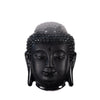Exploring the Meaning and Symbolism of Jade Bracelets
The Stone of Pain in the Side
It’s a popular belief that everything about jadeite is to do with China or Asia where in fact, the earliest discovery of jadeite use was in Central America by the Mesoamericans. Archaeologists uncovered tools made out of jadeite that dates back to as early as 1000 BC, more than 3000 years ago. Jadeite is one of the two types of Jade. Nephrite being the other; is more relevant to ancient China. The word jade originates from the Spanish phrase “piedra de ijada” which translates to “stone of the pain in the side”. This name was given by early Spanish explorers who observed Mesoamericans holding pieces of the stone to the side of their body to cure or relieve various pains and aches. In the late 1700s, the first jadeite reached China from Burma (Myanmar), and from the late eighteenth and early nineteenth centuries jadeite was crafted into beautiful jade jewellery by the Chinese artisans. From then on, the popularity of jade jewellery has increased tremendously. It is loved, cherished and treasured by connoisseurs from all around the world. Particularly, jade bracelets have stood the test of time and continue to hold a special place in the world of jade jewellery today.
The Meaning of Jade Bracelets
The meaning of wearing jade bangle bracelets is personal and unique to each individual. To some, these jade bangle bracelets carry the weight of family legacy, serving as cherished heirlooms that forge unbreakable bonds with loved ones. For others, jade bangles serve as powerful reminders of their cultural heritage, connecting them to their roots. In the world of fashion, jade bangle bracelets have transcended their traditional role, becoming captivating fashion statements.

Generational Treasures
Jade bangle bracelets are often cherished across generations within Asian families. It is common for grandmothers, aunts, or mothers to wear these fine jade bracelets and pass them down to the next generation on special occasions. These heirloom jade bangles hold immense significance for many individuals. They represent more than just beautiful pieces of jewellery; they embody a deep connection that embraces them with the love and memories of their beloved family members.
Embracing Identity and Heritage
Wearing a jade bracelet provides individuals with a profound sense of belonging. Specifically, for those who may feel disconnected from their cultural roots or heritage, a jade bangle bracelet serves as a powerful link to their ancestral lineage. It serves as a reminder of their origins and cultural heritage, creating a deep connection. This is one of the key reasons why younger generations have embraced the tradition of wearing jade bracelets.

From Tradition to Trend
In recent times, jade bangle bracelets are beginning to break free from their traditional image as accessories exclusively worn by elders. They have transformed into captivating fashion statements, serving as both eye-catching accessory and excellent conversation starters. The popularity of jade bangle bracelets has soared in the modern world. They have gained recognition and admiration as they are proudly embraced by famous movie celebrities like Lucy Liu, Sarah Jessica Parker, and Michelle Yeoh, who have been spotted wearing their jade bangle bracelets.
Symbolism of Jade
Jade holds significant cultural and symbolic importance across diverse civilizations and time periods. In China, it symbolises virtues such as purity, intelligence, justice, and loyalty, while also being associated with health, longevity, wealth, and luck. Similarly, ancient Mesoamerican civilizations like the Maya, Aztecs, and Olmecs highly prized and adorned themselves with jade jewellery for their spiritual and ceremonial practices. The significance of jade is also recognised by the Māori people of New Zealand.
Jade Symbolism in Chinese Culture

Confucius and Jade
Jade is highly esteemed in Asian culture, particularly in China and Vietnam, where it holds significant social value. Across Chinese history, wise individuals have associated jade with virtue, conveying its enduring divine worth to the present day. Confucius, in the Book of Rites, identified 11 virtues represented by jade, including intelligence, heaven, earth, sincerity, and truth.
11 Virtues of Jade
No | Virtue | Meaning |
1 | Purity | The shine and brightness of jade represents purity. |
2 | Intelligence | The perfect compactness and extreme hardness of jade represent the sureness of intelligence. |
3 | Justice | The angles of jade, which do not cut, although they seem sharp, represent justice. |
4 | Music | The pure and prolonged sound, which it gives forth when one's jade bangle bracelet is struck by another, represents music. |
5 | Loyalty | The colour of jade represents loyalty. |
6 | Sincerity | The interior flaws of jade, always showing themselves through the transparency, represent sincerity. |
7 | Heaven | Jade’s iridescent brightness represents heaven. |
8 | Earth | Jade is formed by nature, from mountains and water, symbolising the earth. |
9 | Chastity | When jade is used without any decorations it represents chastity. |
10 | Benevolence | The smoothness and lustre of jade represent the harmonious and gentle nature of benevolence. |
11 | Truth | The great value or price that the world attaches to jade represents the truth. |
Health and Longevity
Jade holds significant symbolic importance as a representation of health and longevity in China. It is believed to possess healing properties that boost vitality and fortify the body's natural defences. Wearing jade jewellery, especially jade bracelets has become a common practice to support one’s overall well-being. The stone is associated with various aspects of wellness, harmonising energy flow, aiding in treating kidney and bladder disorders, promoting detoxification, and supporting the immune system. Emotionally, jade brings balance and stability, fostering inner peace and serenity while reducing stress, anxiety, and negative emotions. Its positive impact on heart health is linked to improved circulation, healthy blood pressure, and enhanced cardiovascular function.
Cautionary Note
It is important to note that the use of jade for treating any medical condition lacks scientific evidence. It is strongly advised to never substitute stones or crystals for proper medical care.
Emblem of Prosperity
Jade is closely connected to wealth and affluence, particularly in Chinese culture. Throughout Chinese history, jade has been regarded as a symbol of status and prosperity. Due to its scarcity and preciousness, jade jewellery was a luxury reserved for the elite, including Emperors, noble consorts and members of the imperial court. Consequently, wearing jade jewellery serves as a powerful symbol of success and wealth, and high social standing. The presence of a jade bracelet on one’s wrist signifies not only an appreciation for the stone’s beauty but also a display of opulence and prestige.
Protection and Luck
Jade is believed to have talismanic properties in Chinese culture, capable of safeguarding the wearer from harm, evil spirits, and negative influences. Wearing jade is thought to create a shield of protection, providing a sense of security and warding off potential dangers and to ward off misfortune by deflecting negative energies and attracting positive auras. People wear jade jewellery as a protective talisman, seeking to create a shield around them and attract luck.
What does it mean when your jade bangle bracelet breaks?
According to ancient Chinese lore, wearing a jade bangle bracelet can protect and shield the wearer from ill fate. In the event that the bangle shatters, it is believed that the jade has acted as a protective barrier, absorbing the bad forces aimed at the wearer’s direction.
Jade Symbolism Beyond Chinese Culture
The symbolism and value of jade extend beyond China and Chinese culture. The Mayans, Aztecs, and Olmecs of Mesoamerica, as well as the Māori people of New Zealand, attributed similar symbolic meanings to jade.

Mayan Jade
In ancient Mayan culture, jade was considered a sacred stone. Elite members used to wear handcrafted jade jewellery like earspools, lip plugs, necklaces, bracelets, anklets, pendants, and belts. Just like earlier Mesoamerican cultures, the Mayans also held jade in high religious regard, associating it with themes of life and renewal. They were known to dance with 25 pounds of jade jewellery hanging off their body to communicate with their Gods, and bring themselves into the spiritual world.
Aztec Jade
The Aztecs, another Mesoamerican civilization, also gave high regards to the value of jade. Aztec nobility and rulers wore jade jewellery including jade bracelets as emblems of their status. They considered jade as a symbol of life and purity.
Olmec Jade
Jade's exceptional beauty earned it great value, and the Olmec people used it to fashion exquisite jewellery and ornaments. They skilfully crafted jade jewellery, comprising pendants, beads, bracelets, and earrings. These pieces were worn by the elite and likely symbolised status and prestige.
Jade in Māori Culture
The Māori people of New Zealand have a strong connection to jade, known as green stone or pounamu. Māori wore jade bracelets and carved jade pendants for traditional adornments. Nephrite holds great spiritual and cultural significance for the Māori, representing ancestral connections, strength and protection.

CATHY


















I want to impress a Chinese woman, this is a romantic relationship. Is it OK to give her a Jade ankle chain?
Thank you.